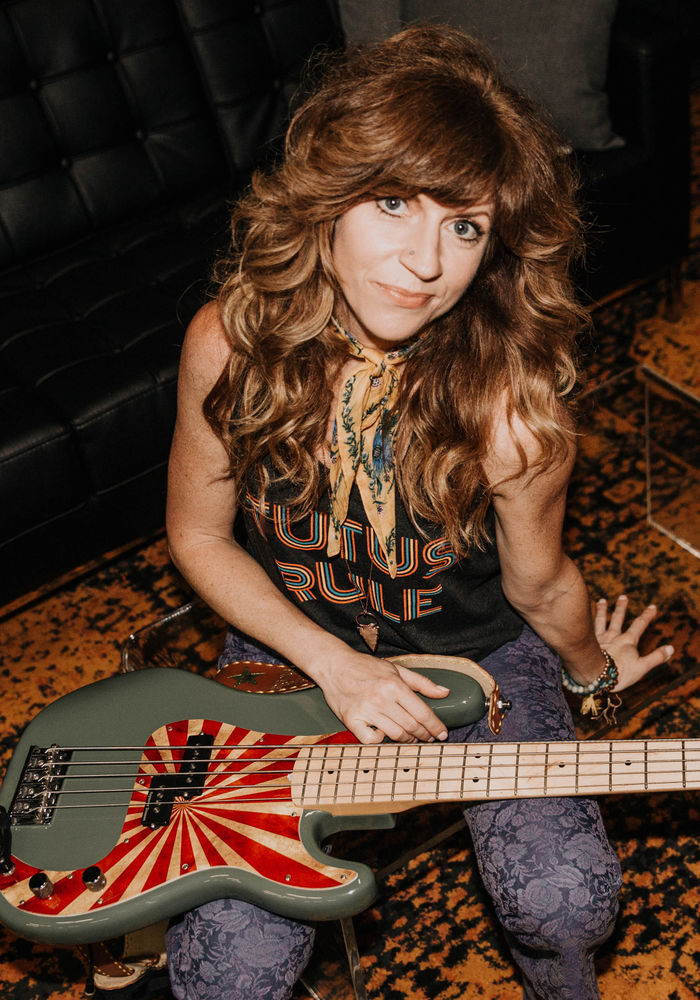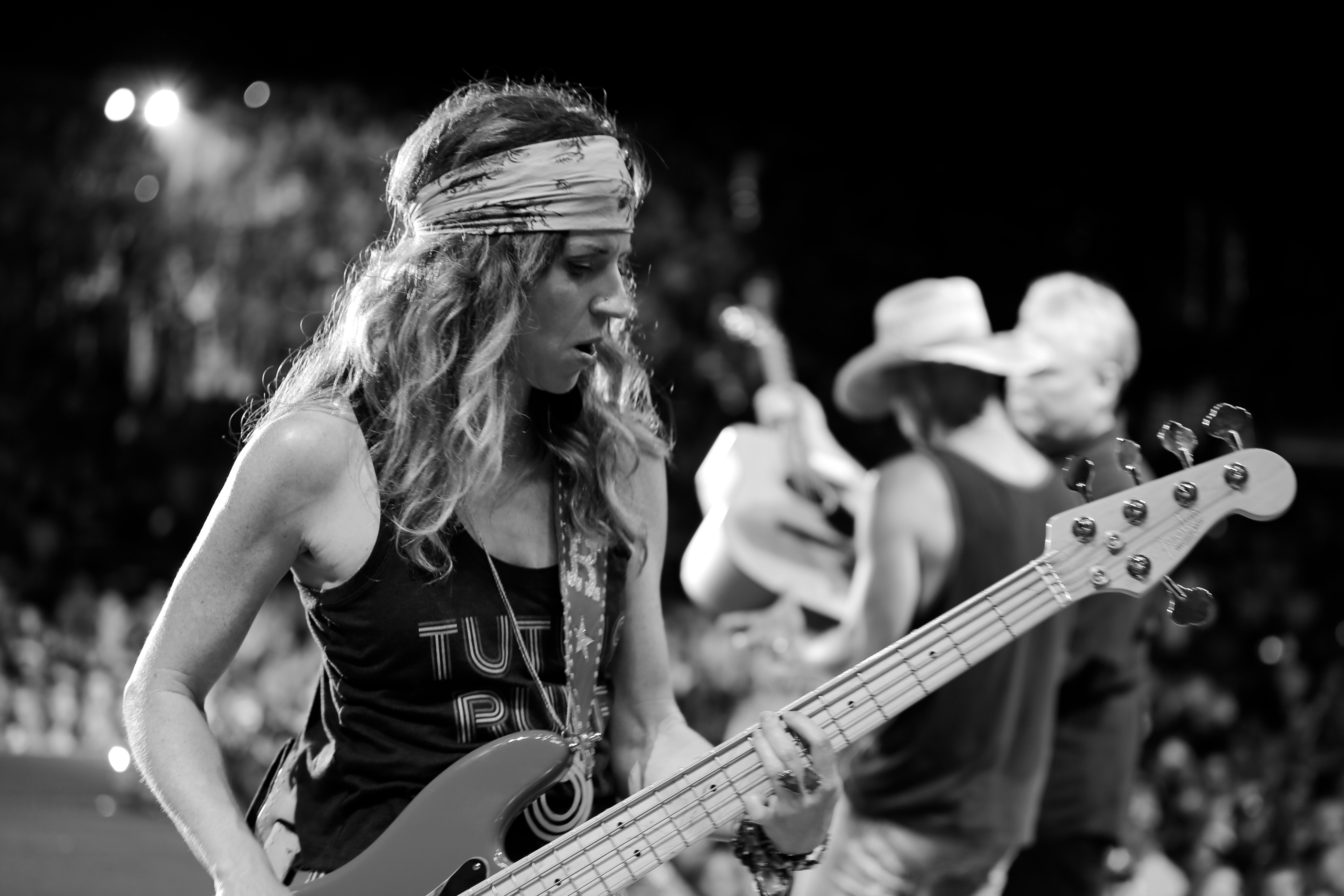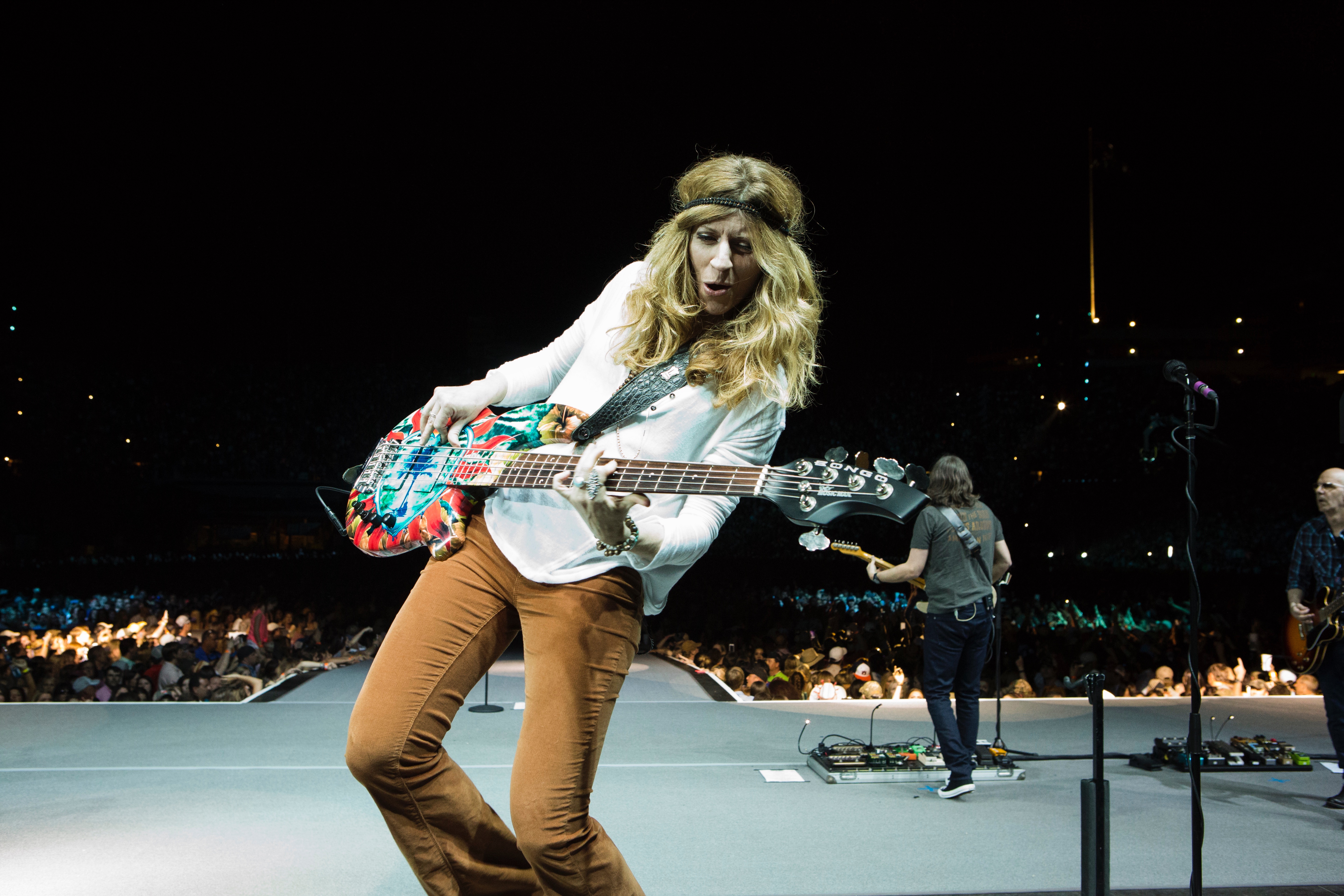What does a touring musician do when all gigs are cancelled? Bassist and vocalist Harmoni Kelley reveals how she’s keeping occupied this year, and why she wouldn’t be without JH Audio and Fender on stage.
Harmoni Kelley should be on tour with Kenny Chesney as the moment. Instead, she’s sipping a coffee in her pajamas for a morning catch up with Headliner from her hometown in Austin. Usually splitting her time between Texas and Nashville (interspersed with numerous tour busses or planes), the usually nationally-touring bassist and vocalist is trying to keep busy.
“I don't do well sitting still,” she says warmly. “A lot of us want to be doing something. We can't tour and we're not going to be rehearsing, so I’ve got to do something – I can't just sit here! So I’m trying to still be creative and learn new things. If I can come out of the other end of this having learned two or three new things, or learned a new skill, then that’s a win for me. That's a great silver lining to the weirdness of this whole pandemic.”
Harmoni auditioned for Chesney in 2014, and has been touring with him steadily ever since. Since all touring has been cancelled, she has turned her attention to recording at home and has been tentatively dipping her toes into the world of music production. Chesney the rest of his band have kept in contact throughout the year – in fact her boss messaged the group a few days ago, remarking on where they should have been playing that night:
“It’s funny to call him my boss, because he's a friend at this point. I'm sure it's kind of driving him crazy to not be touring right now, because he loves it so much and he feeds so much off of that energy. I know it's killing him to not actually be able to play and be out there on stage, because he’s so good at it. You don't know how much you miss it until it's taken away,” she sighs. “You really realise how big of a thing it is in your life.”
A self-taught musician, Harmoni picked up the bass guitar at age 17 and hasn’t looked back. With over two decades of experience both on the road and in the studio, she has mastered the art of playing by ear and understands the importance of being able to lay back, listen and play for the song:
“I asked for a bass and an amp for Christmas when I was 17 and my parents maybe thought it was crazy,” she chuckles. “They said, ‘well that's all we're getting you, and even that is going to be tricky’. I remember going to the music store here in Austin with my dad, which sadly doesn't exist anymore. We picked out a bass and an amp, and it stuck with me. I actually recently bought a Gretsch Catalina drum kit – I'm a rhythm section gal, for sure.
"And I'm self taught: I just sat down in front of the record player or the CD player and started to play along. I never went to music school and I think I took one lesson from another bass player friend of mine here in Austin when I needed to learn how to play slap bass on a particular song. It just evolved from there,” she says modestly.




